Genre: Children Developer: Novotrade Publisher: Sega of America Players: 1 Released: 1995
You remember the Magic School Bus right? It’s an educational cartoon about a school teacher named Ms. Frizzle and her class of students who go around on crazy adventures of learning in a magic school bus, and impossible things happen. Any show that puts kids into a pinball machine that helps them learn about the colors of the light spectrum gets an A in my book. And since the Magic School Bus puts learning and fun together, it’s only fitting that the series got its own Sega Club title. But Sega Club does have its notorious reputation for churning out overly simple games that not even kids would enjoy very long.
In this episode of Sega Club we venture into space, the final frontier. The cast of the Magic School Bus takes a ride to each planet, where you play multiple games and learn about each planet of our great solar system (save for Earth, which is replaced by the Moon since exploring the Earth would be well, unnecessary). This game literally has it all. We get to play games such as puzzles, flight simulators, platforming, and lots of other good stuff. This game doesn’t suffer from the same repetitive gameplay that almost every other Sega Club title suffers from, and it makes the game a lot more fun. And to top it off, it’s a pretty lengthy game with a password feature, so your kids won’t be asking for more when the game is over. Since there are a bunch of different games, I’ll start off by explaining each one at length.
The premise of the game is basically exploring each planet of our solar system save for Earth, which is instead replaced by an exploration of the Moon. You start off by heading to your designated planet in a flight simulator game where you have to drive to your planet, shoot down asteroids heading your way, and take pictures of objects (such as the space station) that are floating near the planet. The object is to get to the planet without running out of fuel by flying into the 3D-rendered blue and white ball that you encounter while driving to the planet (they give you a small amount of fuel when you run into them) and taking as best a picture as you can of whatever objects float by. Run out of fuel and you lose a life. This game may sound like too much is going on for the controller to handle at once, but it actually works very well, and the controls are great. It’s fun to shoot down the asteroids and you get to learn about the different things floating in space (even if they aren’t real, such as a Sega Saturn floating around while driving to Saturn, which shows how late this game was actually made).
As an added bonus if you shoot three gold asteroids while you are flying through an asteroid field during your ride, you are sent to a mini-game of Asteroids (starring the Magic School Bus, of course, in place of the regular spaceship) where you basically play Asteroids for more points. It runs on its own lives system so if you die here you won’t lose a life from the main game. Since it is Asteroids, of course it’s fun, but it’s a bit easy as the controls are tightened, the asteroids don’t break down into as many pieces and you get an extra life just for completing a level. The difficulty is actually just right for kids. The mini-game ends when you run out of lives.
Once you come up to your designated planet, you are taken to another classic ’80s game, Astro Lander, where you must try to land the Magic School Bus onto the designated platform while collecting the same 3D blue balls as seen in the flight simulator on the way. Again, the game is not nearly as hard as the original as asteroids, and the difficulty is just right for kids, as both Asteroids and Astro Lander would be far too hard for the young audience of this game to enjoy in their original state.
Once you’ve successfully landed the bus, you move onto the next level, a platformer where you play as Ralphie (one of the students) walk on the surface of the planet (regardless of what planet it is, which makes it kind of funny when the kids go walking on Venus) and find your way to Ms. Frizzle before you run out of oxygen while collecting (not surprisingly) 3D balls that give you points and sometimes fuel or oxygen. Surprisingly enough, this is probably the weakest of the different games. You’ve got a jump, a double jump, and a jet pack with limited fuel supplies to jet you around. The controls are good, but the jumping is flat out horrible. It’s slow and hard to control, and you barely move. The jumping makes you wish the jet pack didn’t use up the fuel so fast, because without it you feel like your dragging an anvil behind you, with the way the jumps are designed. But it’s playable enough, and there are some very interesting features in the platforming stages, such as driving a rover around, or flying in a lander. It’s got an interesting space feel to it. The jumping really makes this game tough to control though, and it slows down the pace of this game considerably.
After you find Ms. Frizzle in the platforming level, you play a shuffle puzzle (where you switch the places of pieces around until you create a picture) and then a small memory match game that matches up a word with a certain picture. Liz the Lizard here is the cursor for selecting things, and he moves a little slow at times which kind of irks me, but it’s better than using a plain old cursor. At any time you can go back to the pictures you took in space by pressing Start and then A, and you can see what exactly you took pictures of, and you can then find out what matches what in the memory match game. So your child won’t be guessing in the dark. Both games are timed though, so if you run out of time, you lose a life.
On a side note, I will say that if you don’t want to play through the story mode of the game, you can always play Asteroids, Astro Lander, Breakout, and a planet orbiting game whenever you want to. So this game even has replay value, which is surprising. The games are all decent overall. They’re fun, yet educational at the same time, and the kids will enjoy them. The graphics are colorful and there’s some 3D rendering effect with the different blue balls that you have to collect throughout the different mini-games. The sound and music are good and sound very clear.
All in all, if you want to teach your kid about the solar system, or you’re trying to find a game that’s simple enough for your child to understand yet fun to play on your Genesis, then Magical School Bus is the one. It’s not repetitive like most other Sega Club games, it’s not boring, it’s lengthy, it teaches kids something, and it features cartoon characters. What more could you want from a Sega Club game? And since most of the games cater to all ages, you’ll be able to play along with your child and have almost as much fun as they will.
SCORE: 9 out of 10

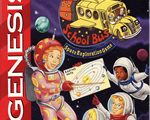
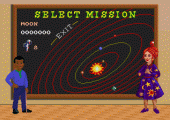
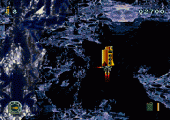
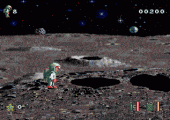
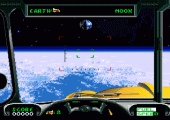
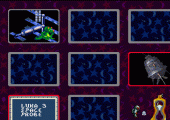
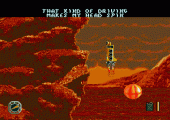
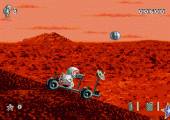
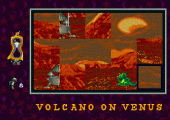
Recent Comments